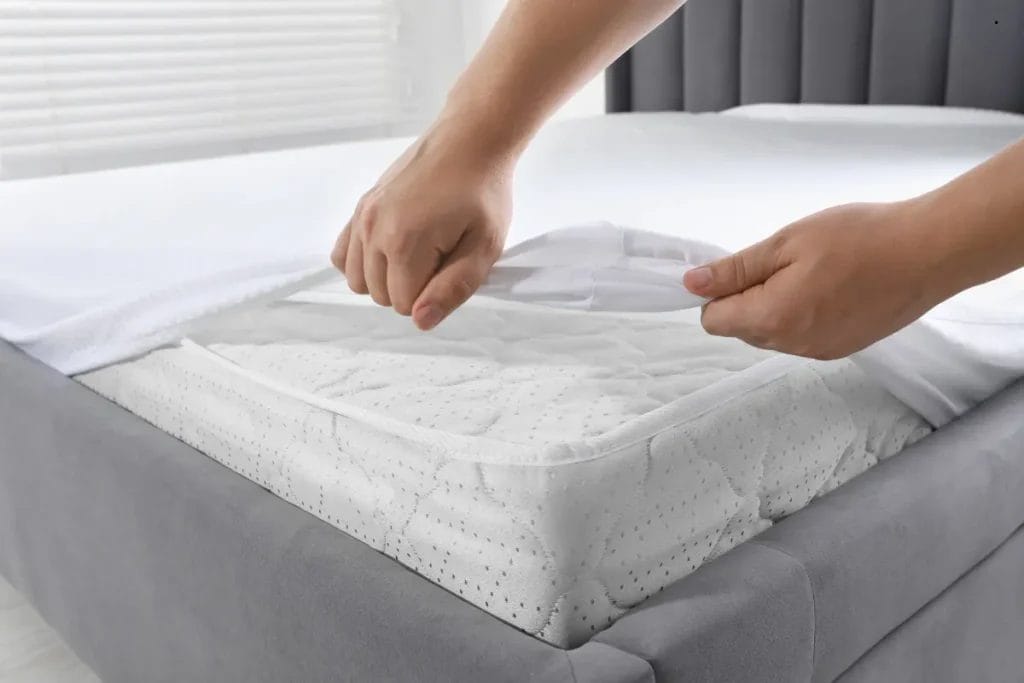Finding the right mattress is key to a good night’s sleep, but with so many choices available, it can feel overwhelming. Balancing factors like firmness, material, and support is important, as each choice has its pros and cons. It’s essential to consider how each decision affects your comfort and well-being.
Understanding Comfort in a Mattress
Comfort varies from person to person, but several key factors can help guide your decision. Firmness, material, and support all play important roles in determining comfort. However, balancing these factors can be tricky.
For example, a softer mattress may feel comfortable initially, but it might lack support for heavier individuals. On the other hand, a firmer mattress may provide more support but could be too uncomfortable for side sleepers.
It’s crucial to consider how each element impacts your sleep quality and well-being when choosing the most comfortable mattress for you.

Types of Mattresses: Exploring Your Options
When shopping for a mattress, it’s essential to understand the different types available, as each offers unique features suited to specific needs. For instance, memory foam mattresses provide great pressure relief but may trap heat, while innerspring models offer a bouncier feel and strong support but might lack durability.
Hybrid mattresses, which combine both foam and coils, offer a balance of comfort and support, though they can be more expensive. Each type has its benefits and tradeoffs, so it’s important to consider how each will impact your sleep quality and comfort before making a decision.
Material Matters: Foam, Hybrid, or Innerspring?
Different mattress materials offer unique benefits, making it important to consider what works best for your needs. Memory foam, for example, contours to your body, providing excellent pressure relief, but it can trap heat, which might be uncomfortable for some.
On the other hand, innerspring mattresses offer strong support and a more traditional feel, though they can lack the pressure relief that foam offers. Hybrid mattresses combine foam and coils, providing a balance of comfort and support, but they tend to be more expensive.
Each material has its tradeoffs, so it’s crucial to think about how comfort, support, and durability align with your preferences.
Sleeping Position and Its Impact on Mattress Choice
Your sleeping position plays a significant role in determining the type of mattress that will offer you the best comfort and support. For example, side sleepers often benefit from a softer mattress that provides pressure relief on the hips and shoulders, but this may sacrifice support for the spine.
In contrast, back sleepers need a mattress with a medium firmness to provide even support while keeping the spine aligned. Stomach sleepers typically require a firmer mattress to prevent sinking, which could lead to neck and back strain.
Balancing these needs can be challenging, so it’s essential to select a mattress that aligns with your preferred sleep position for optimal comfort.
Tips for Finding the Right Mattress for Your Budget
Comfort doesn’t have to break the bank—many affordable mattresses still offer great quality and support. Start by considering the type of mattress that fits your budget. While memory foam and hybrid models tend to be more expensive, innerspring mattresses are often more affordable without sacrificing support.
However, cheaper mattresses may lack some long-term durability, which could affect comfort over time. To strike the right balance, look for sales or discounts, and be sure to test the mattress before purchasing.
It’s also worth checking the warranty and return policies, as these can impact the value of your investment. By carefully weighing your options, you can find a mattress that suits both your budget and your comfort needs.
Conclusion
Ultimately, the most comfortable mattress for you should match your body type, sleeping habits, and preferences. Balancing factors like firmness, support, and material can be challenging, so take your time to test different options. The right mattress will improve your sleep quality, ensuring you wake up feeling rested and refreshed.
FAQs
1. How do I know if a mattress is right for me?
To determine if a mattress is right for you, consider factors like your sleeping position, body weight, and comfort preferences. Test different firmness levels to see what feels most comfortable, and pay attention to whether the mattress provides adequate support for your spine and pressure points.
2. Can a mattress be too firm or too soft?
Yes, a mattress can be too firm or too soft depending on your sleep needs. A mattress that’s too firm may cause discomfort and pressure points, especially for side sleepers. On the other hand, a mattress that’s too soft may lack support, leading to poor spine alignment, particularly for back or stomach sleepers.
3. How often should I replace my mattress?
Generally, mattresses should be replaced every 7 to 10 years, depending on the quality and usage. Over time, mattresses lose their ability to provide proper support and comfort. If you wake up with aches or feel your mattress has lost its shape, it may be time for a new one.